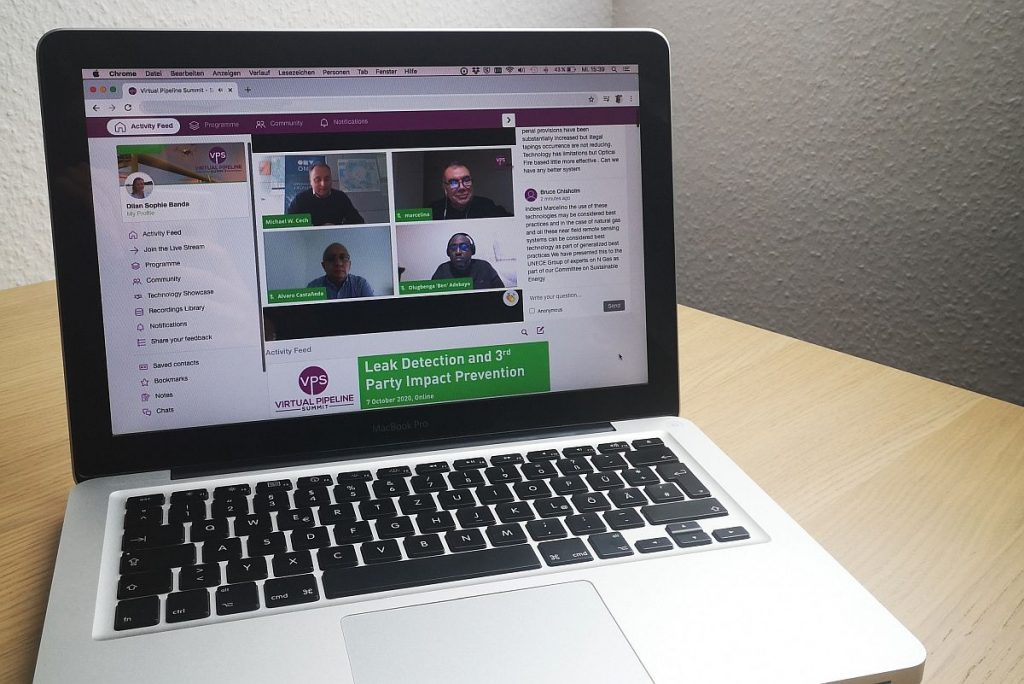The Unique Online Summit for Pipeline Operators and Service & Technology Providers
The Virtual Pipeline Summit (VPS) series of online events was established in 2020 and offers extended knowledge transfer and networking features.
Over the past 2 years, the summits have covered a wide range of important issues for the pipeline industry. In addition to digital transformation, leak detection, illegal tapping, difficult to inspect pipelines and offshore challenges the focus on decarbonization has been of particular interest.
VPS 7 is already the second VPS on the focus decarbonization and it will again provide a comprehensive overview and competitive technology showcase of a spectrum of problems and solutions related to the "Decarbonization of the Pipeline Industry".

The Virtual Pipeline Summit is organized by EITEP Institute, organizer of the Pipeline Technology Conference (ptc) and publisher of the Pipeline Technology Journal (ptj).

The Virtual Pipeline Summit features the same essential success factors as a a face-to-face event.
Extensive conference program with lectures and discussions on current challenges in day-to-day operations.
Advanced networking features for all participants.
Participating pipeline operators get a comprehensive overview of technological advances and new solutions in the market.
Technology Leader Industrial & Energy, Evonik Operations, Germany


Masters Degree in process engineering at Martin Luther University Halle/Germany.
10 years of experience in R&D in the polymers industry. Functional experience includes R&D, Testing & Application technology development and polymer processing as project and team leader. Mainly focused in development work for the energy market with high performance polymers and semi finished products like unidirectional CF-Tapes. Recently moved to R&D projects portfolio management and tech scouting for Industrial & Energy.
Employment history:
Evonik Operations GmbH, 2019 - present
Technology leader Industrial & Energy
Responsible for directing and managing the R&D project portfolio of segment Industrial&Energy
Evonik Resource Efficiency GmbH 2015 - 2019
Sen. Project Manager O&G Composites Development
Responsible for thermoplastic composites development for O&G and managing of material development and qualification projects.
Evonik Industries AG 2011 - 2015
Project Manager in Testing and Application Tech. Development
Responsible for development of specialized testing setups including in HP-HT environments for compatibility studies for polymers vs. supercritical CO2. Rig up and implementation of new composites testing lab into Product care and Analytics department, Head of Composites testing laboratory.
Fraunhofer IWM, Halle a. d. Saale, Germany, 2010 - 2011
Scientific assistant
Alternative & Clean Energy Technical Sales Advisor, Halliburton PPS, United Kingdom


With a background in ILI and pigging of challenging pipelines, Danny is a Director of the Pigging Products and Services Association and a member of the Pipeline Technology Conference Advisory Committee. Danny now concentrates on the role of pipelines in the energy transition, including repurposing of existing infrastructure to carry hydrogen and carbon dioxide for sequestration.
Managing Director, EITEP Institute, Germany

All time specifications are in Central European Time (CET). The presentations will be recorded and will remain available online afterwards.
Opening and Welcome Presentation
Panel discussion with live Q&A session
Germany

The Pipeline Technology Journal (ptj) features latest developments, innovative solutions and a comprehensive news service for the international pipeline industry. All the technical articles are freely available on an open access basis. The ptj newsletter and the electronic journal reach more than 20,000 pipeline experts worldwide.
VPS is not just another webinar. The goal of the Virtual Pipeline Summit is to provide a comprehensive overview and competitive technology showcase of a spectrum of problems and solutions in the market.
The VPS provides a comprehensive overview of current problems and solutions in the market. The different technological approaches are in competition with each other and can be discussed online before, during and after the summit.